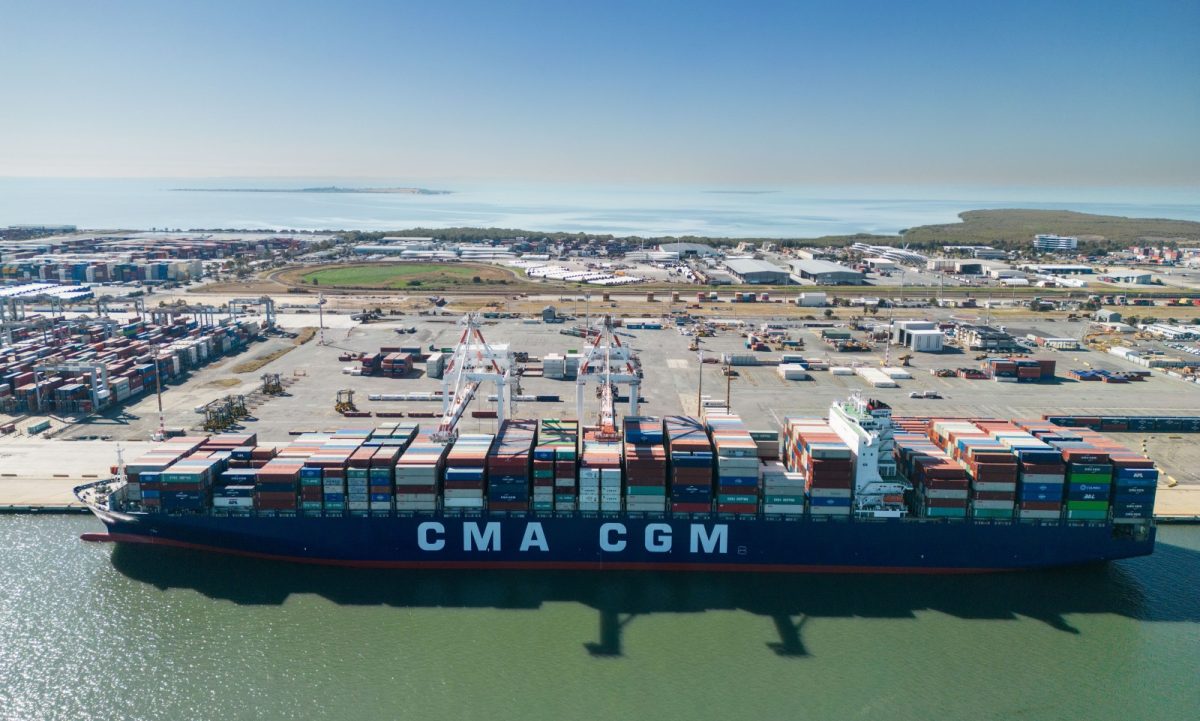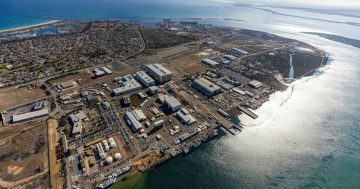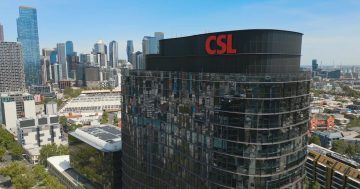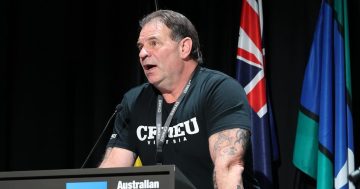
The Maritime Union of Australia’s protected industrial action so far comprises two-hour work stoppages. Photo: DP World.
Federal Minister for Employment and Workplace Relations Tony Burke has told port operator Dubai Port (DP) World and the Maritime Union of Australia that the Federal Government will not step in to sort out their long-running dispute over wages.
Mr Burke told media on Thursday (18 January) that he had just come from a meeting with both parties where he had told DP World that he would not be staging a ministerial intervention to settle the dispute, and that both parties should meet with the Fair Work Commission to arbitrate for a settlement.
DP World has container port facilities in Sydney, Melbourne, Brisbane and Fremantle, and handles an estimated 40 per cent of Australia’s container freight. The company is owned by a United Arab Emirates Investment Fund, which is ultimately owned by the UAE royal family.
The maritime union is asking for a 16 per cent wage rise for its 1500 port workers to bring wages into line with those paid by other Australian stevedoring companies, most notably Patrick. It also wants an increase to back pay of 27 per cent over two years.
The Fair Work Commission refused an application by DP World to suspend protected industrial action by the union for 90 days on 13 December, after which the union claims DP World walked away from the negotiation table.
“At the close of six days of facilitated bargaining meetings which the union had forced the company to engage with by application to the Fair Work Commission, an in-principle agreement has still not been reached to deliver fair pay, job security and safe working conditions at four container terminals in Brisbane, Sydney, Melbourne and Perth,” a 13 December union media release reads.
“Rather than continue negotiating, company representatives sought to shelve all further meetings until January 29th, 2024.”
In the past week, the Fair Work Commission approved protected industrial action by the workers at port facilities in Sydney, Brisbane and Fremantle. The union’s initial action so far has been two-hour work pauses, but it hasn’t ruled out an escalation of its actions.
For its part, DP World has claimed that the dispute and the industrial action will impact trade and increase the cost of living. It says the dispute is costing the economy $84 million a day in port delays.
Speaking to the media on 18 January, a visibly angry Minister Burke said he had made it clear to both parties that he expected them to come to the table to negotiate an outcome, and that the company’s publicity campaign had done little to help its case.
“I have made clear to the company as well, if they had invested as much into negotiating as they have into their media campaign, they may already have an agreement,” he said. “That it is in the interests of everybody, including the company, that they negotiate and they use the Fair Work Commission to help them with that conciliation.
“But the concept of where every other business in Australia is expected to negotiate with their workforce but this business wants to rely on ministerial intervention is not a view that impresses me, and I expect them to do the same as every other business in Australia.”
Mr Burke described DP World’s action so far as misguided.
“In terms of their workforce, the maritime union went through the differences between pay rates there and pay rates at Patrick, for example,” he said.
“The company would say you could never get a complete parallel because the systems are different, but to reach an agreement everybody needs to give a bit. That’s how you get to agreements.
“I think Australians are sick to death of having highly profitable companies say everything is the fault of them having to pay their workforce the same as their competitors.
”I think people are sick to death of being told that their wages are always the problem.”
Australian Retailers Association CEO Paul Zahra said it was becoming critical that both parties brought the dispute to a head urgently.
“Australian retailers need unimpeded access to the global supply chain to operate, and this industrial action is starting to have an unacceptable impact on the flow of goods from overseas suppliers into our sector,” he said.
“All categories are affected but we are particularly concerned about perishable food, fresh produce, pharmaceuticals and other essential goods, including back-to-school merchandise.
“That’s why we need DP World and [the union] to resolve their differences in the interests of the Australian economy and consumers.”
Original Article published by Andrew McLaughlin on Riotact.










